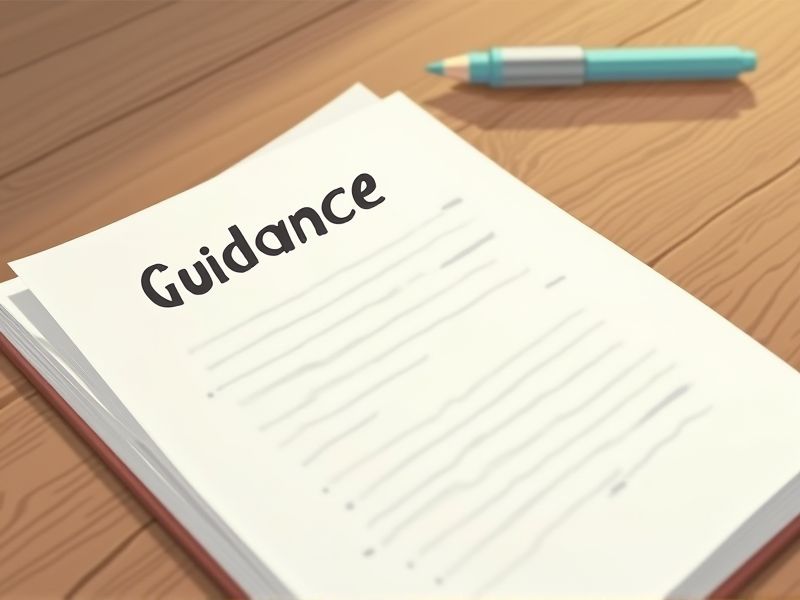
Guidance counselors play a pivotal role in supporting students' academic and personal development, necessitating a comprehensive understanding of educational psychology and counseling techniques. Without relevant certifications, counselors may lack the necessary skills to effectively address diverse student needs, potentially hindering their ability to provide optimal guidance. Certifications ensure counselors are equipped with updated industry knowledge and adhere to professional standards, ultimately benefiting their clients. Here are some key certifications you may need to become a guidance counselor.
National Certified Counselor (NCC)
The National Certified Counselor (NCC) credential is needed for guidance counselors because it ensures a standardized level of competency and professionalism, enhancing credibility among educators and students. With rigorous verification processes, NCC certification signifies the counselor's adherence to nationally recognized ethical guidelines, improving trust and safety in school environments. Certification often leads to an expansion of career opportunities and professional growth. By meeting NCC standards, guidance counselors are more effectively prepared to handle diverse student needs across academic, career, and personal domains.
Certified School Counselor (CSC)
The need for a Certified School Counselor arises because they possess specialized training in developmental guidance and counseling, ensuring they effectively address students' emotional and academic needs. Schools with CSCs witness improved student performance and reduced behavioral issues due to their evidence-based interventions. CSCs are skilled in creating supportive environments that enhance mental health and well-being, leading to a healthier school climate. They play a critical role in career planning, helping students align their educational pathways with future job markets.
Licensed Professional Counselor (LPC)
Guidance counselors support students' academic and emotional development, but handling complex mental health issues requires specialized skills. Licensed Professional Counselors (LPCs) possess advanced training in therapeutic techniques, enhancing their capacity to address these challenges. Combining LPC expertise with counseling frameworks can significantly improve student outcomes in schools. Without LPCs, the guidance counselor's ability to manage severe emotional or psychological issues would be limited.
Certified Clinical Mental Health Counselor (CCMHC)
Guidance counselors often face complex mental health issues among students, requiring the specialized skills of a Certified Clinical Mental Health Counselor (CCMHC). The CCMHC qualification ensures that counselors possess the advanced clinical training necessary to identify and treat a wide range of mental health conditions. Schools with CCMHC-certified guidance counselors report improved student mental health outcomes due to their ability to provide evidence-based interventions. By holding this certification, guidance counselors can bridge the gap between academic guidance and mental health support, creating a more comprehensive support system for students.
Certified Career Counselor (CCC)
A Certified Career Counselor (CCC) is essential for a Guidance Counselor to provide specialized career development advice, backed by credible training and certification. They enhance the accuracy of vocational assessments, significantly improving the alignment between a student's skills and potential career paths. With a CCC's expertise, Guidance Counselors can stay updated with current labor market trends, ensuring students are informed about viable career opportunities. The CCC credential reinforces trust, ensuring students and their families have confidence in the counselor's recommendations.
Certified Addictions Counselor (CAC)
Schools often encounter students with substance abuse issues, which can disrupt learning environments and affect overall student well-being. A Certified Addictions Counselor (CAC) possesses specialized knowledge in addiction, equipping them to address these specific challenges effectively. Without this expertise, guidance counselors might struggle to provide the necessary support to students facing such issues. Implementing a CAC allows schools to manage addiction-related cases more efficiently, promoting a healthier school community.
Crisis Intervention Training Certification
Guidance counselors often encounter students in distress, and Crisis Intervention Training Certification equips them with the skills to accurately assess and respond to these situations. This certification enhances their ability to de-escalate potential crises, promoting a safer school environment. It provides counselors with techniques to connect students to appropriate resources, ensuring timely support. Regular exposure to this training helps counselors maintain their effectiveness in addressing mental health challenges among students.
Suicide Prevention Awareness Certification
Suicide Prevention Awareness Certification equips guidance counselors with critical skills to identify warning signs in students at risk. Enhanced training improves intervention strategies, leading to timely support and potentially saving lives. Certified counselors contribute to creating a safer educational environment by fostering open communication and trust. Schools benefit from having certified counselors as they align with legal and ethical standards for student safety and mental health support.
Trauma-Focused Cognitive Behavioral Therapy (TF-CBT) Certification
Trauma-Focused Cognitive Behavioral Therapy (TF-CBT) certification equips guidance counselors with specialized skills to address the unique challenges faced by students who have experienced trauma, leading to more effective support and improvement in students' emotional and behavioral outcomes. When counselors are certified in TF-CBT, they are better prepared to identify and respond to signs of trauma-related distress, thereby reducing the risk of long-term psychological impact on students. The certification also ensures that counselors are up-to-date with evidence-based practices, promoting a consistent and high-standard approach to trauma care within educational settings. Without TF-CBT certification, counselors may lack the necessary tools and methodologies to adequately support traumatized students, potentially resulting in unmet needs and exacerbated mental health issues.
Mindfulness-Based Stress Reduction (MBSR) Certification
Guidance counsellors with MBSR certification can effectively address stress-related issues, which often impact students' mental health and academic performance. Proper training in mindfulness enables counsellors to guide students in developing coping mechanisms that foster emotional resilience. MBSR certification ensures that counsellors have a structured and evidence-based approach to stress reduction, enhancing the quality of support they provide. As stress and mental health challenges rise among young people, having certified counsellors becomes essential for comprehensive educational support systems.
Summary
When you obtain certifications as a Guidance Counsellor, you enhance your credibility and expertise in the field. This increase in qualifications can lead to greater trust and confidence from both students and parents. Schools and institutions may value your specialized skills more, potentially opening up advanced career opportunities. Your ability to provide informed and effective guidance can improve outcomes for those you counsel.
